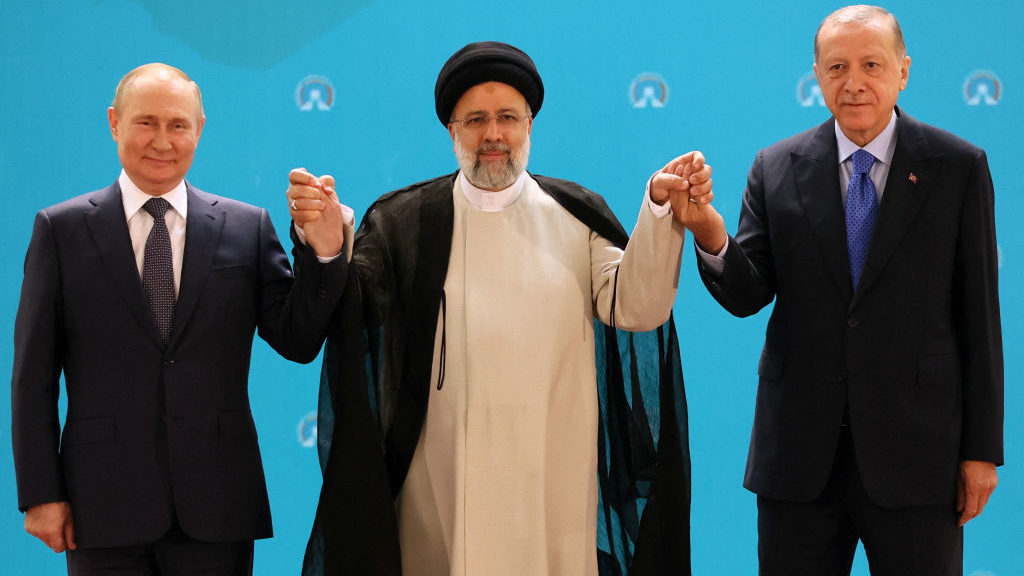Tehran’s Summit in the Wake of the Jeddah Summit
Asharq Al-Awsat, London, July 21
It is not a coincidence that Iran was in a hurry to hold a regional summit between the leaders of Russia, Iran and Turkey during the same week in which President Biden participated in an Arab summit hosted by Saudi Arabia in Jeddah. It is an act of desperation, after the mullahs gave up hope that their coveted nuclear deal would come to fruition under the Biden administration. President Biden found that the old nuclear agreement lost its value over time, and that the Iranian regime hardened its position. It is typical for Tehran to fall behind. When Biden extended open hands to Iran with the hope of reaching a new deal, Tehran played hardball and demanded more, such as removing the Revolutionary Guards from terrorist list. This was not possible. This is how the negotiations collapsed, and Iran was sidelined again. Two days ago, former Iranian President Hassan Rouhani blamed the Iranian parliament, saying: “We could have lifted the sanctions against our country in March 2021, had it not been for the parliament’s decision on the nuclear file.” Rouhani was indirectly criticizing the Supreme Leader, who is directly responsible for the nuclear talks. Accordingly, Iran held the summit to send the message that it isn’t isolated. But this is of course nothing more than trickery. Turkey is a member of NATO, and it has developed its relations with the Gulf States and Israel. It does not want confrontations, and Erdogan is seeking to solve his country’s difficult economic crisis. Russia, in turn, will not find in the economically and politically exhausted Tehran regime anything that serves its interests, whether in its most pressing issues, such as the Ukraine war, the oil market, investments or diplomatic mediation. It is not in Russia’s interest to jeopardize its relations with large countries such as the Arab Gulf States, Egypt and Jordan in exchange for a relationship with Iran. These countries, despite their agreement with the United States, haven’t closed the door to cooperation with Moscow, and have taken a neutral position on the Ukraine conflict. Iran may be keen to appear as a strong and non-isolated state, but reality remains very different. The Tehran regime sought to persuade countries, such as India and Armenia, to participate, but was unsuccessful. Today, Iran is trying to use Russia and Turkey to pressure the US back to the negotiating table, but this effort won’t succeed. These countries may cooperate with Iran, but their cooperation remains modest. There is no reason for Russia and Turkey to form a hostile front against most of the countries in the region. – Abd Al-Rahman Al-Rashed (translated by Asaf Zilberfarb)


